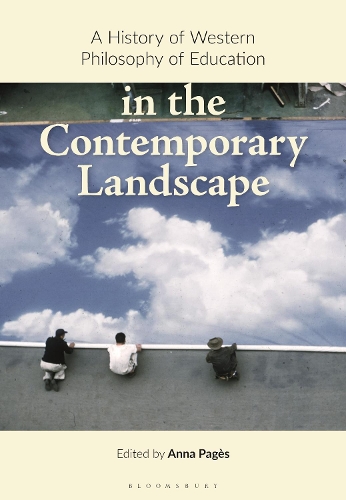
A History of Western Philosophy of Education in the Contemporary Landscape
(Hardback)
Available Formats
Publishing Details
A History of Western Philosophy of Education in the Contemporary Landscape
By (Author) Anna Pags
Bloomsbury Publishing PLC
Bloomsbury Academic
25th February 2021
United Kingdom
Classifications
Tertiary Education
Non Fiction
370.1
Physical Properties
Hardback
288
Width 172mm, Height 246mm, Spine 26mm
660g
Description
This volume traces the history of Western philosophy of education in the contemporary landscape (1914-2020). The volume covers the Cuban Revolution in 1959, the events of May 1968 in Paris, the Zapatista Revolution in 1994, and the Arab Spring revolutions from 2010 to 2012. It also covers the two World Wars, the Cold War, the fall of the Berlin Wall, and the triumph of science and technology until the hegemony of post-liberal societies. The philosophical problems covered include justice, freedom, critical thought, equity, philosophy for children, decolonialism, liberal education, feminism, and plurality. These problems are discussed in relation to the key philosophers and pedagogues of the period including Jacques Derrida, Paulo Freire, Simone De Beauvoir, Judith Butler, R.S. Peters, bell hooks, Martha Nussbaum, Matthew Lipman, Giorgio Agamben, Maxine Greene, and Simone Weil, among others. About A History of Western Philosophy of Education: An essential resource for researchers, scholars, and students of education, this five-volume set that traces the development of philosophy of education through Western culture and history. Focusing on philosophers who have theorized education and its implementation, the series constitutes a fresh, dynamic, and developing view of educational philosophy. It expands our educational possibilities by reinvigorating philosophys vibrant critical tradition, connecting old and new perspectives, and identifying the continuity of critique and reconstruction. It also includes a timeline showing major historical events, including educational initiatives and the publication of noteworthy philosophical works.
Reviews
[About the series] Not since Robert Ulich's groundbreaking A Thousand Years of Educational Wisdom has there been such a comprehensive examination of the history of western educational thought. Given that Ulich's work was published almost eighty years ago, there is an obvious need for an update. This series more than fills the bill by adding important topics such as feminism, racism, pluralism, and critical theory. The series goes a long way in bringing the history of Western educational thought up to date. It will be of enormous value to students of educational history and philosophy. * Walter Feinberg, Charles Hardie Professor Emeritus, Educational Philosophy, The University of Illinois, Champaign/Urbana, USA. *
